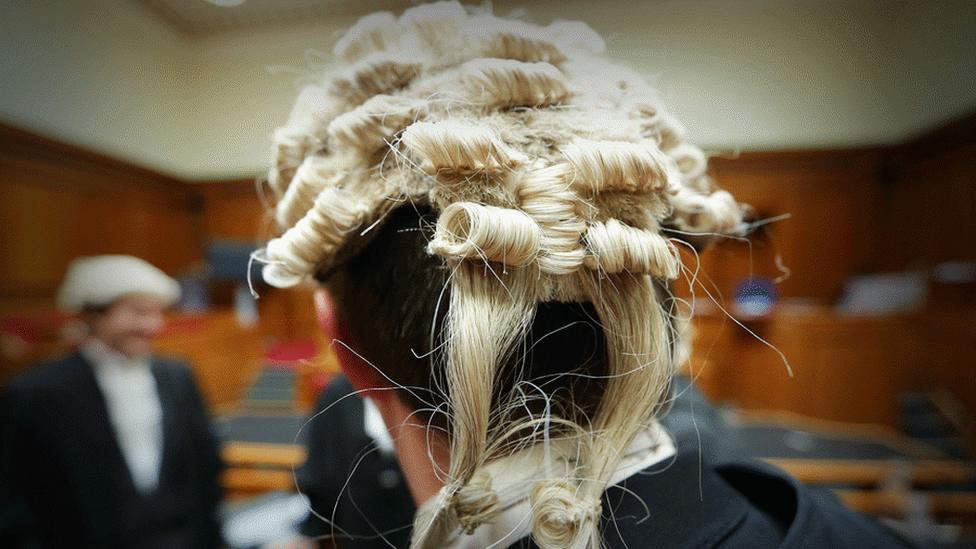Coronavirus: High Court trials to resume with distanced jurors
- Published
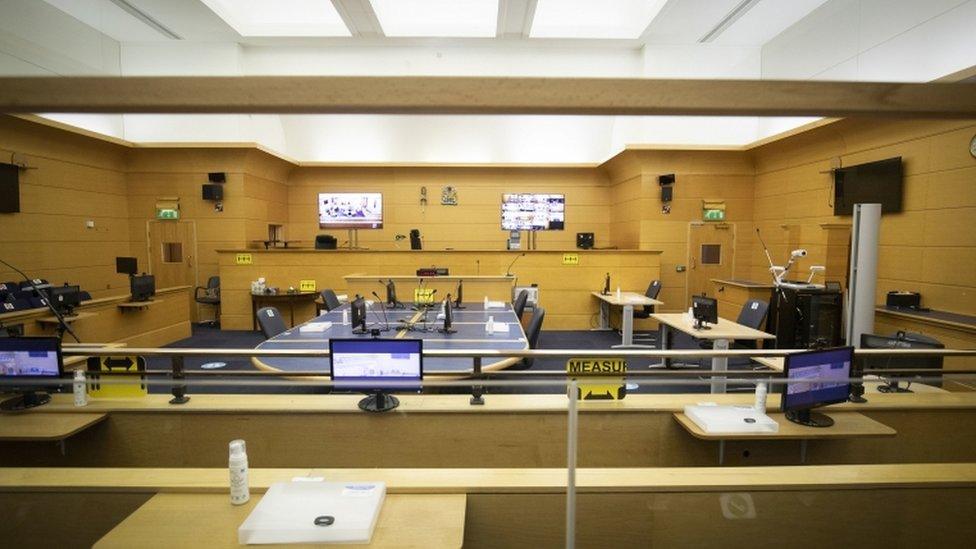
Strict physical distancing measures will be in place when trials resume at the High Court in Edinburgh
The first High Court trial in Scotland since lockdown will get under way in Edinburgh on Monday.
Digital technology has been installed to allow the jury to watch the case from a different room within the court building on the Royal Mile.
If successful, it could lead to juries operating from remote locations such as conference centres or even cinemas.
The proposals were drafted by a working group which includes representatives from across the justice sector.
Lord Justice Clerk, Lady Dorrian, who chairs the group, said: "The challenges in conducting a 15-person jury trial in a physically distanced environment cannot be underestimated and I would like to thank all those involved for their commitment to ensure that justice is delivered safely."
The last trial to take place at Edinburgh High Court was that of the former first minister Alex Salmond.
It started more than a week after the first confirmed case of Covid-19 in Scotland.
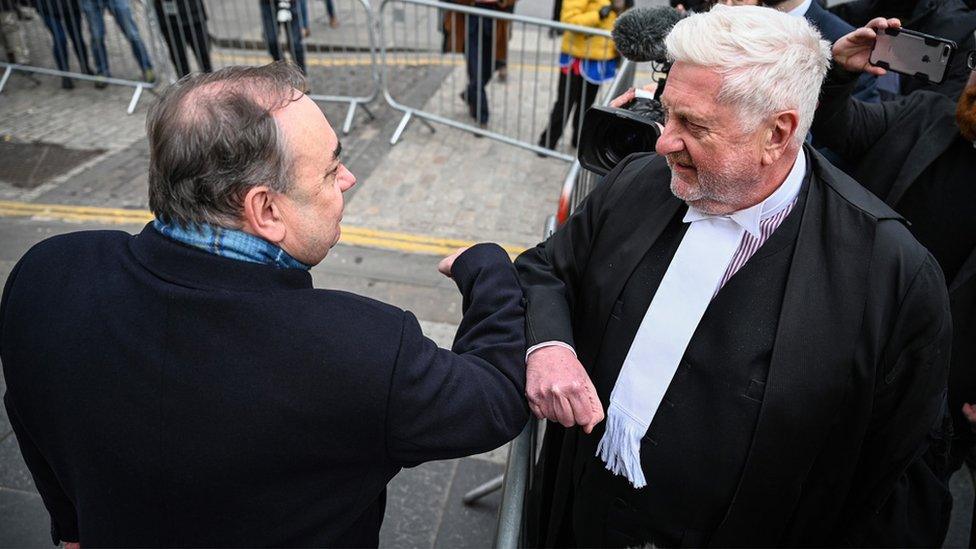
Alex Salmond with his defence lawyer Gordon Jackson QC outside the High Court in Edinburgh after he was cleared of sex assault charges
On 23 March, the day Mr Salmond was cleared of sexually assaulting nine women, he addressed a scrum of camera crews, photographers and reporters.
Hours later Prime Minister Boris Johnson announced the UK-wide lockdown in a televised address to the nation.
The last High Court trial in Scotland ended in Glasgow the following day.
The High Court hears the most serious criminal cases in the land, with sixteen trials normally running every day in Edinburgh, Glasgow, Aberdeen and Livingston.
But the backlog that was already there before lockdown has grown over the last four months.
By August, 750 High Court cases will be in the system waiting to go, delaying justice for victims and accused alike.
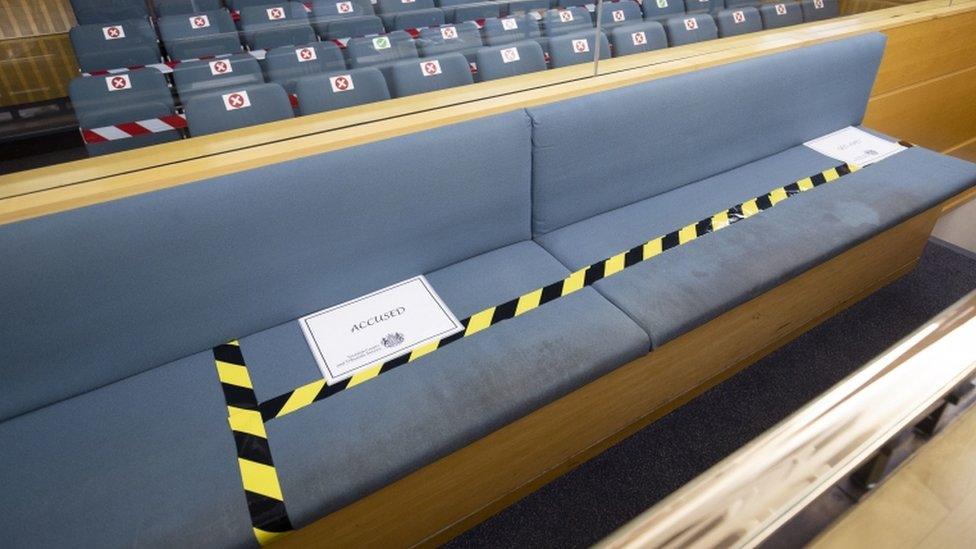
Tape in the dock reminds the accused to keep their distance from the security guards
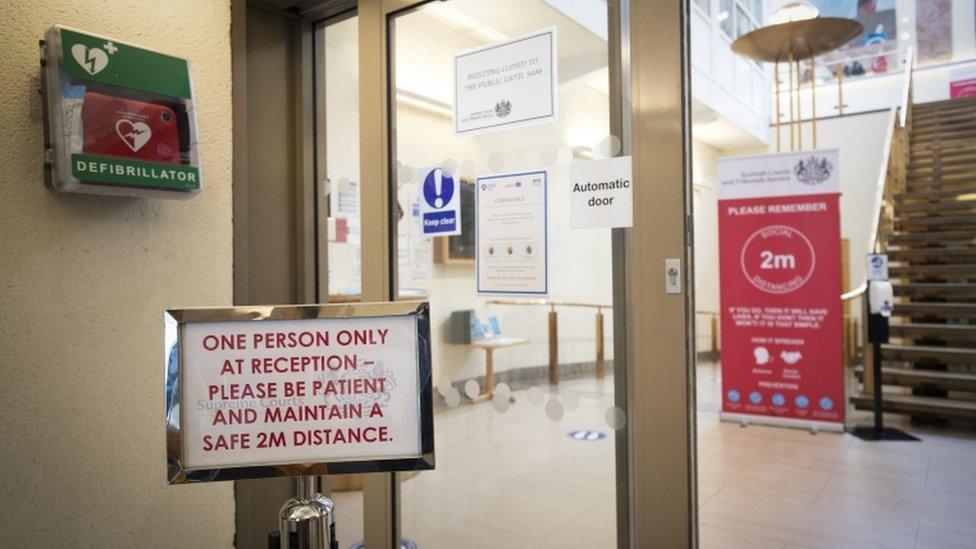
Those arriving at court are reminded to maintain a "safe 2m distance" from others in the building
A working group chaired by a senior judge was set up to find solutions, and on Monday the High Court in Edinburgh will begin a new chapter in social distancing for the judicial system.
The accused will be in the dock flanked by socially-distanced security guards, with room for the media in the public gallery.
The general public will not be allowed in and the jury will be present only in digital form.
Court number three, a huge room that has witnessed some of Scotland's most notorious murder trials, will from next week take on a very different role.
Scattered around the room each juror will sit in front of a monitor showing different views of the trial being held downstairs.
On Monday, 15 jurors and five or more substitutes will be balloted remotely, then asked to come to the court to hear the case.
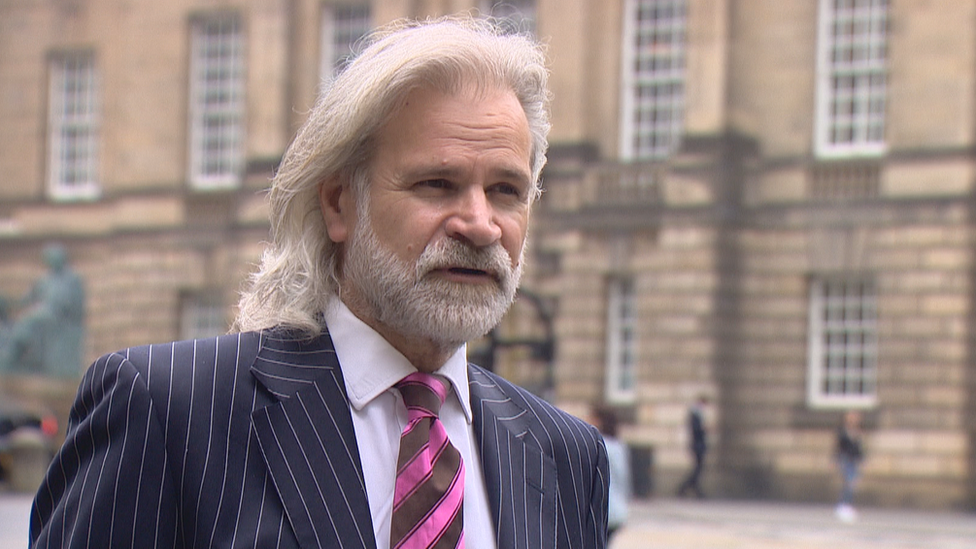
Ronnie Renucci QC is a member of Lady Dorrian's working group
It means jury trials will be up and running again but very few of them will take place initially.
One option under consideration is to use the same technology with the juries in remote locations like cinemas and conference centres.
Ronnie Renucci QC, president of the Scottish Criminal Bar Association, told BBC Scotland: "If that particular model is favoured then, because it frees up courts, then there should be no reason why we can't at least get jury trials up and running in the High Court to the levels they were running before.
"Now we appreciate that might take time and it will be a slow build but we certainly feel that we can get there."
A second trial will begin in Glasgow on Tuesday, with the jury sitting in the public gallery of the courtroom.
The Scottish government is considering other ideas which would require a change in the law.
It has been suggested the country could have smaller juries, like it did during World War Two.
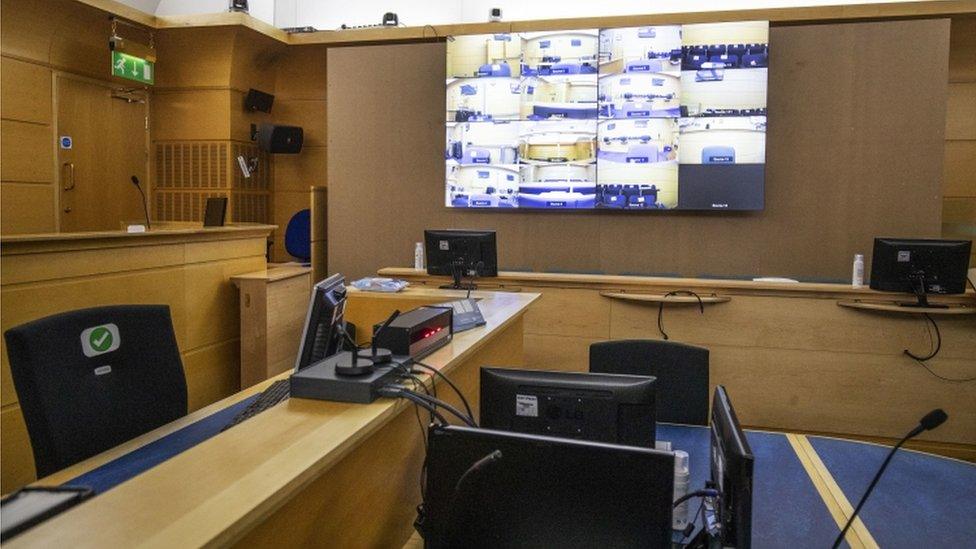
Multiple cameras in court will allow jurors to follow the action
The pressure is on to find a solution as Victim Support Scotland says the delays and uncertainty are having a huge impact on the mental health of people affected by serious crime.
Justice Secretary Humza Yousaf welcomed the "innovative approaches" taken to enable trials to resume.
He said: "I am very conscious of the impact of the pandemic on justice systems across the world and the inevitable backlog of cases that require to be dealt with as a result of this.
"Behind each delayed jury trial are victims, witnesses and accused, who are all anxious to have their day in court and move on with their lives."
Mr Yousaf said "further operational and legislative options" were being considered.
He added: "While no single solution will be sufficient, the resumption of solemn trials is an important milestone on the journey to recovery for the Scotland's court system and the safe administration of justice in the most serious cases."
The Scottish Courts and Tribunals Service has published an information pamphlet, external and a separate information sheet, external for jurors detailing the measures in place to ensure the safety of all parties.
- Published26 May 2020
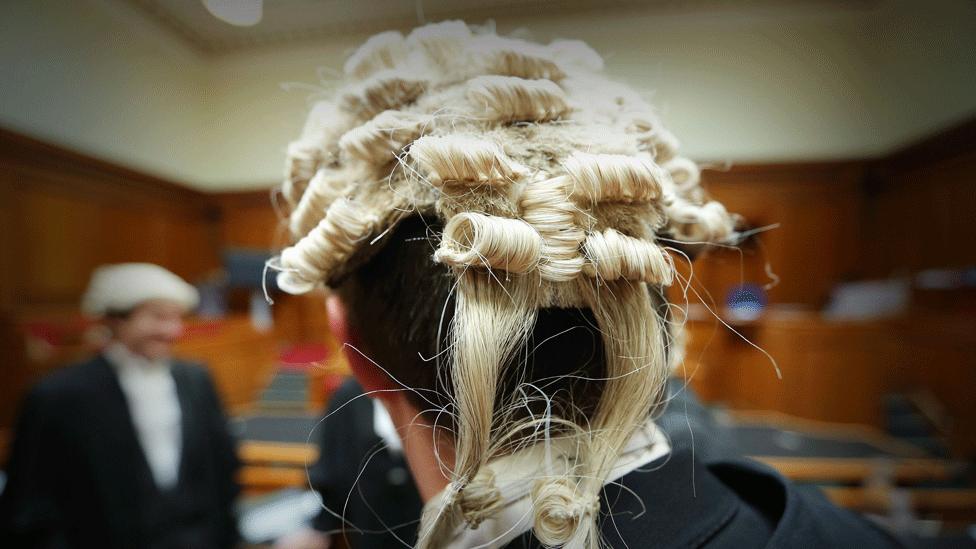
- Published15 April 2020
